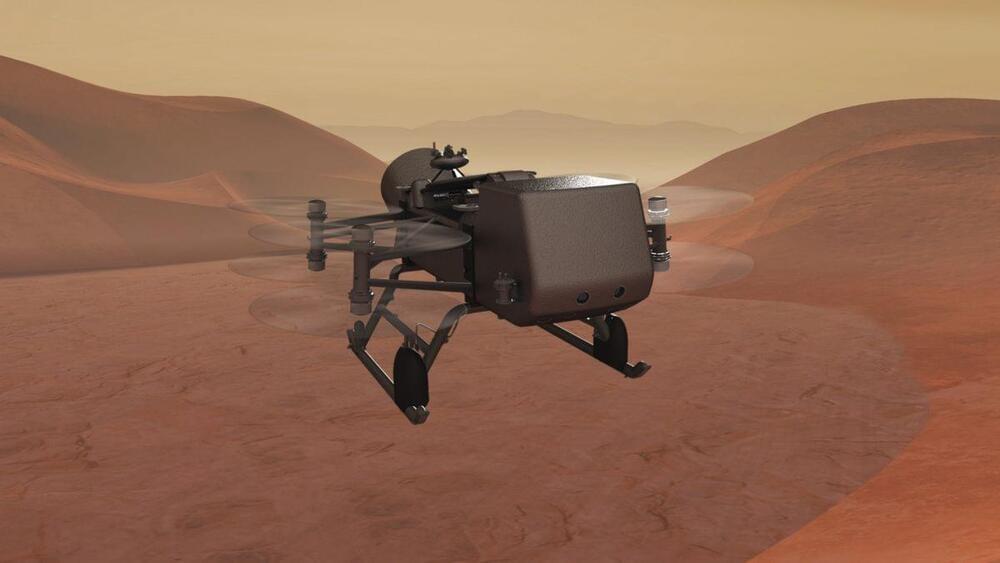NASA’s Dragonfly mission to Saturn’s largest moon will touch down on a terrain of dunes and shattered, icy bedrock, according to a new analysis of radar imagery from the Cassini spacecraft.
Launching in 2027, Dragonfly is a rotorcraft that will arrive in 2034 and explore Titan from the air. Its range will be far greater than that of a wheeled rover, with Dragonfly capable of covering around 10 miles (16 kilometers) in each half-hour flight, according to NASA. Over the span of its two-year mission it will explore an area hundreds of miles or kilometers across. However, before taking to the sky on its own, Dragonfly must first arrive on Titan under a parachute, soft-landing on frozen terrain that is hidden from easy viewing by the dense hydrocarbon smog that fills the moon’s atmosphere.
